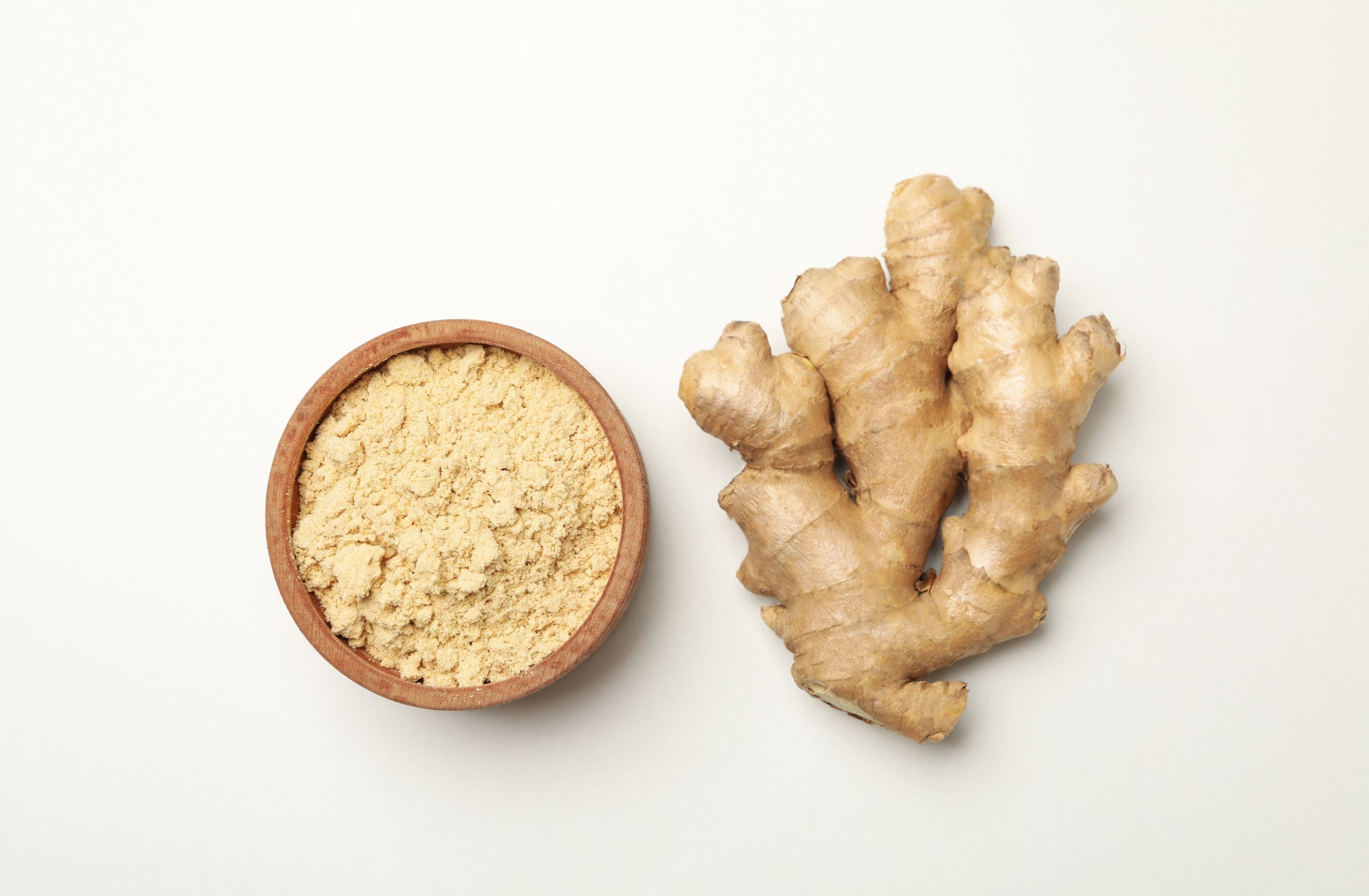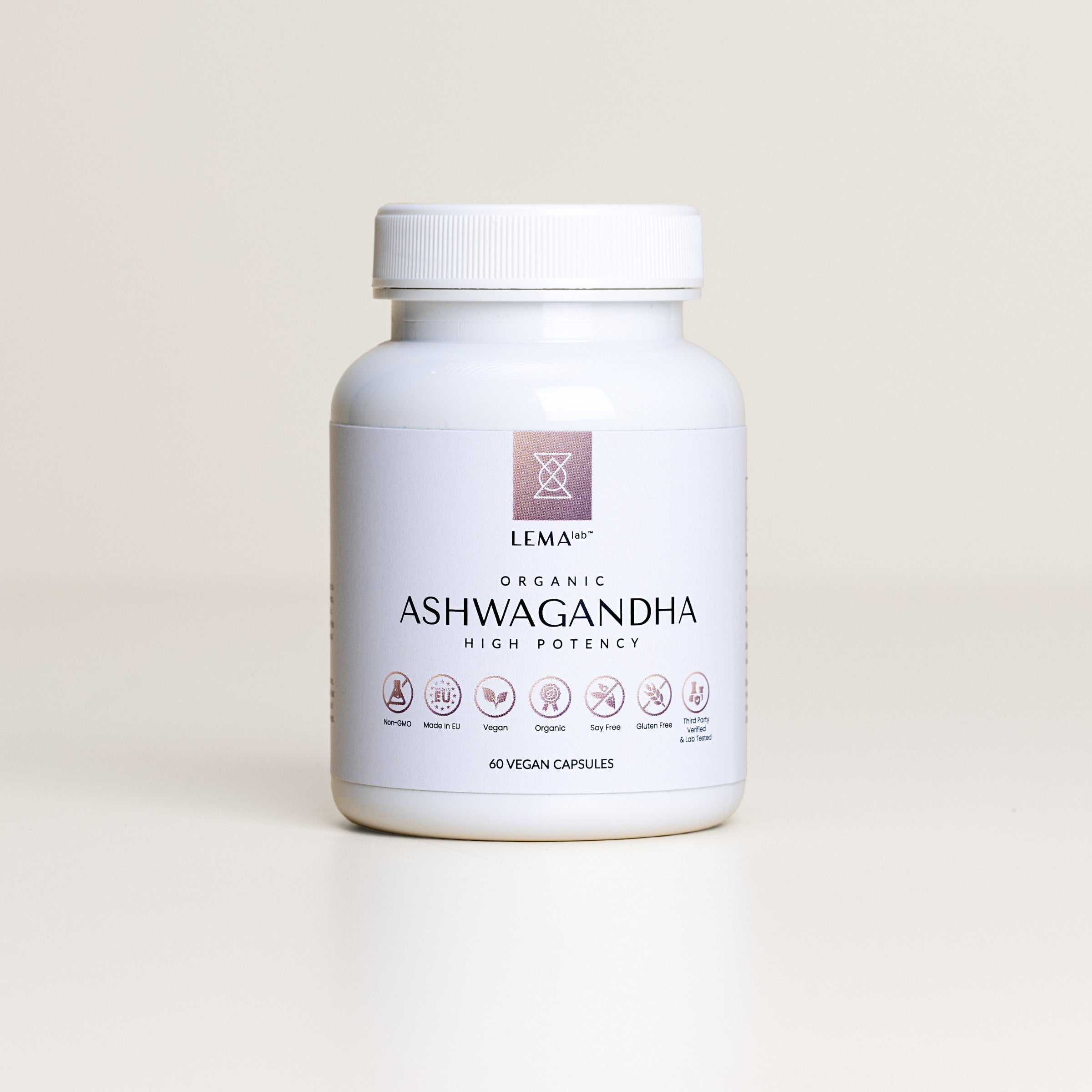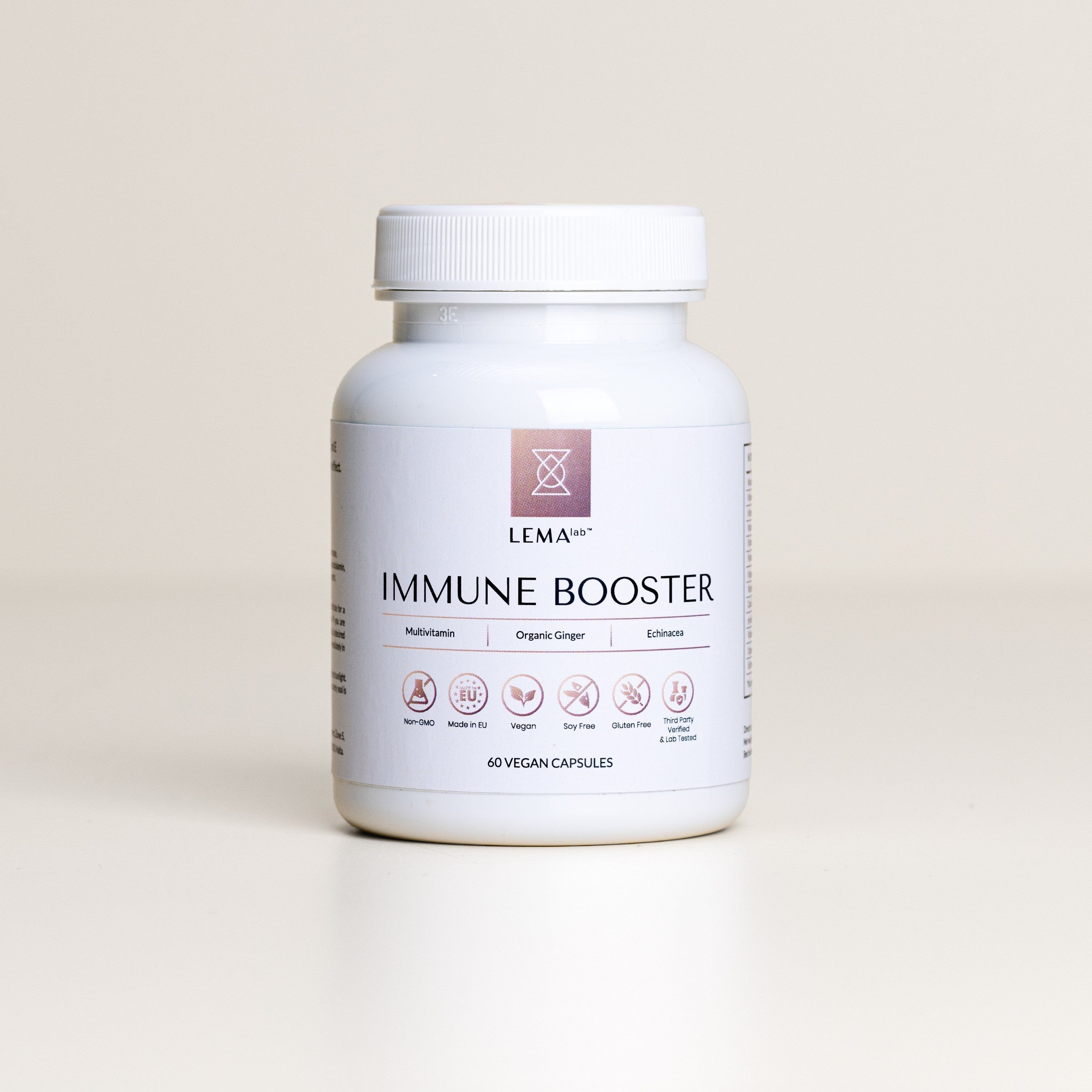
FROM DIGESTION TO BRAIN HEALTH: THE MULTIFACETED BENEFITS OF GINGER
Did you know that ginger can naturally support digestion by helping food move smoothly through your system and speeding up stomach emptying? This versatile root is widely known for its powerful anti-inflammatory properties and has been used for centuries to ease joint pain from conditions like arthritis and to strengthen the body’s defences against the common cold. But ginger’s benefits go far beyond these familiar uses. With its wide array of health-supporting qualities, ginger truly stands out as a natural powerhouse. Let’s explore some of its scientifically backed health benefits.

NATURAL ENZYMES FOR EASIER PROTEIN DIGESTION
Ginger contains an enzyme called zingibain, part of a group known as cysteine proteases—natural proteins that break down other proteins into smaller, easier-to-digest pieces. Similar enzymes like papain (from papaya) and bromelain (from pineapple) are also known for aiding digestion [3,5].
As we age, our stomach produces less acid, which weakens the function of pepsin, a key enzyme needed to digest proteins. Combined with slower intestinal muscle movement, this can make it harder to digest protein-rich foods, leading to bloating and discomfort. Ginger’s zingibain enzyme can help by breaking down proteins more effectively, making digestion smoother and more comfortable [6].
HELPING FOOD MOVE THROUGH YOUR SYSTEM
Research shows that ginger can help food move more efficiently through the digestive system—a process known as gastrointestinal motility. This ‘prokinetic effect’ means ginger stimulates stomach muscles to contract, allowing food to pass into the intestines more quickly [7].
This is especially helpful for easing bloating, discomfort, and that heavy, full feeling after meals—often caused by delayed stomach emptying. Studies in both animals and humans consistently show ginger’s ability to relieve these symptoms, making it a reliable choice for digestive health [7].
FIGHTING HARMFUL BACTERIA IN THE GUT
Ginger doesn’t just help digestion—it also protects the gut from harmful bacteria. Compounds in ginger, such as gingerols and shogaols, have been shown to fight off bacteria like E. coli (a common cause of stomach infections) and Staphylococcus aureus (which can cause food poisoning) [8]. By stopping these harmful bacteria from growing in the gut, ginger helps maintain a healthy balance of good bacteria, supporting overall digestive health [8].

SUPPORTING HEALTHY BLOOD SUGAR LEVELS
Emerging research suggests ginger may also help manage blood sugar levels. In one study, people who took 2 grams of ginger powder daily for 12 weeks saw significant improvements in fasting blood sugar [4]. They also showed lower levels of markers linked to long-term blood sugar issues and oxidative stress (damage caused by harmful free radicals) [4].
Ginger may also help prevent glycation—a process where excess sugar in the blood binds to proteins, forming harmful molecules called advanced glycation end products (AGEs). These AGEs can damage tissues and organs, speeding up ageing and increasing the risk of complications like nerve and kidney damage, especially in people with diabetes [9]. By reducing the formation of AGEs, ginger could help protect your body and support better metabolic health [9].
If you'd like to learn more about glycation, read our article, UNDERSTANDING GLYCATION: A CULPRIT IN AGEING TISSUE.
PROTECTING BRAIN HEALTH
Ginger’s benefits might even extend to your brain. Its key compounds, 6-gingerol and 6-shogaol, have strong antioxidant and anti-inflammatory effects that protect the brain from damage caused by oxidative stress and chronic inflammation—two major contributors to cognitive decline [1].
While most of this research comes from animal studies, early findings suggest ginger could help protect against age-related brain conditions like Alzheimer’s and Parkinson’s disease [2]. More research is needed, but ginger’s potential for supporting brain health is promising.
BOTTOM LINE
Ginger is a versatile natural remedy that supports digestion, metabolic health, and brain health. Its enzymes aid in protein digestion, while its prokinetic properties ease bowel movements and reduce bloating. Ginger also combats harmful gut bacteria and may help prevent complications like glycation—potentially caused by sustained high blood sugar levels. With its antioxidant and anti-inflammatory effects, it may help prevent age-related cognitive decline and neurodegenerative diseases like Alzheimer’s and Parkinson’s, making it a valuable addition to your wellness routine.














Leave a comment
This site is protected by hCaptcha and the hCaptcha Privacy Policy and Terms of Service apply.